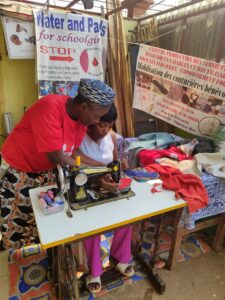On March 8, 2016 the Centre on Gender and Global Change of the Graduate’s Institute in Geneva hosted a very joyful event: a debate on a motion saying:
‘This house believes betting on gender parity as the game changer is a risky gamble.’
Realizing gender equality is critical to progress across all the 2030 Sustainable Development Goals and requires actions by States, civil society and the private sector alike.
This global pledge includes a target of ensuring women’s full and equal participation and equal opportunities for leadership at all levels of decision-making in political, economic and public life.
Gender parity is fast becoming the cornerstone of gender equality strategies designed to reduce gender gaps in all sectors from access to education and parliamentary elections to women’s economic empowerment.
What does parity mean and how will it contribute to gender equality? Are there any unintended consequences to consider? What are the experiences of using gender parity to close gender gaps and challenge gender bias?
So far I quoted the flyer, which gives enough food for thought.
The debaters were people with serious functions, but they made very funny remarks and it was rather difficult to decide on which side to be.
At first sight a feminist would say that the motion was poppycock, of course we need gender parity. Then Kate Gilmore, the deputy High Commissioner for Human Rights, said it was elitist, and Stuart Halford, Senior Representative for the Sexual Rights Initiative, thought that gender parity could not be the result, also it would lead to demands by other groups: homosexuals, handicapped etc.
The people against the motion were Arancha Gonzalez, the Executive Director of the International Trade Centre, and Elisabeth Pruegl, Professor of International Relations/Political Science at the Graduate Institute. They argued that gender parity was a strategy to reach gender equality. Without it women would never get a chance. Also diversity in business is good, research proves that.
It is the smart thing to do!
The funny thing was that all four debaters were in favor of gender equality and the people pro the motion really had a hard time finding arguments.
The voting in the end showed 65% against the motion and 32% in favour. The rest did not know.
The debate had a sequel the next day with a side event called The Barbershop. An all male panel except for Kate Gilmore.
The moderator, M.Kimmel, a professor of sociology explained that historically the barbershop was a men’s refuge, where men discussed their feelings with each other and the barber.
Men should now change the discourse and be an ally to women. He asked all the men what was the moment in which they realized, felt the click, about their own bias: The thing that happened to them that made them realize that an occurrence is not personal but political. All the men told very personal stories.
Prof. Kimmel summed it up by telling of an experiment were men and women audited for a post in an orchestra. Top music students were more women than men, yet positions in an orchestra were mainly male. The result of the auditions were still more males. Then they put the contestants behind a screen, and the result was the same. Asked why a juror said: I could hear the clicking of high heels on the floor to the screen. Then they put a carpet under the screen and the result was 50/50.
This goes to show that gender bias is unconscious. And the question is: WHAT IS THE CARPET YOU WOULD USE TO BECOME FAIR?


